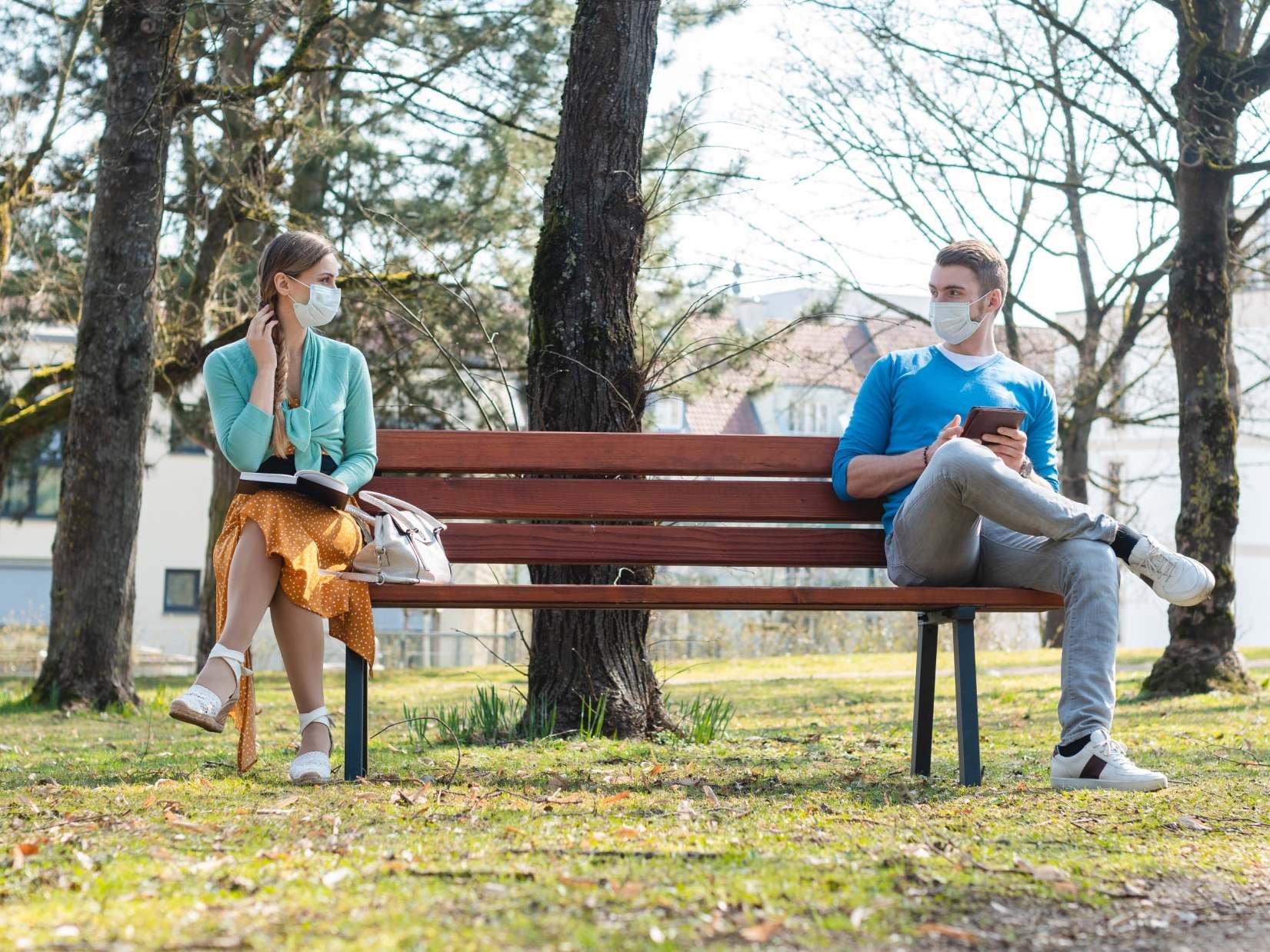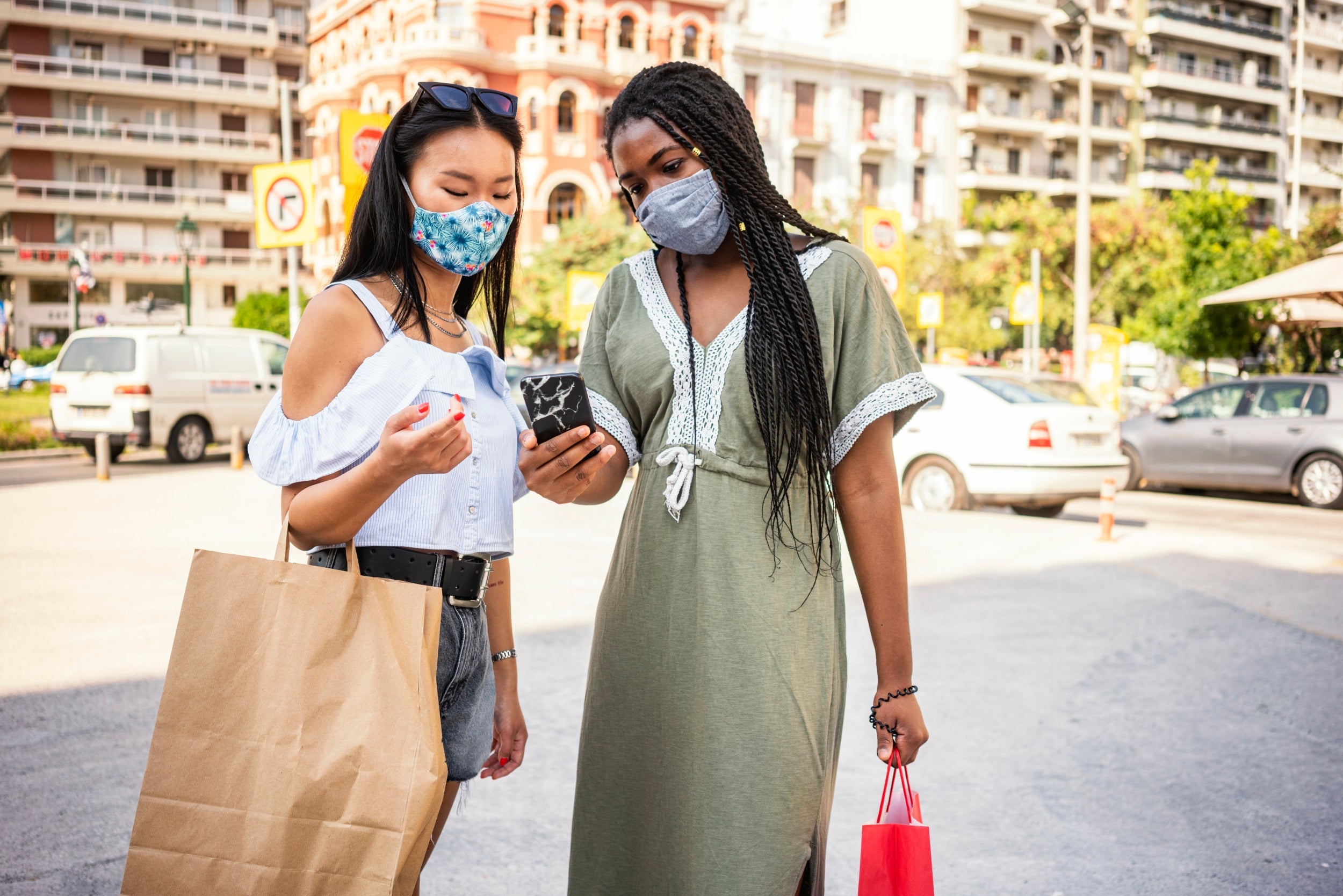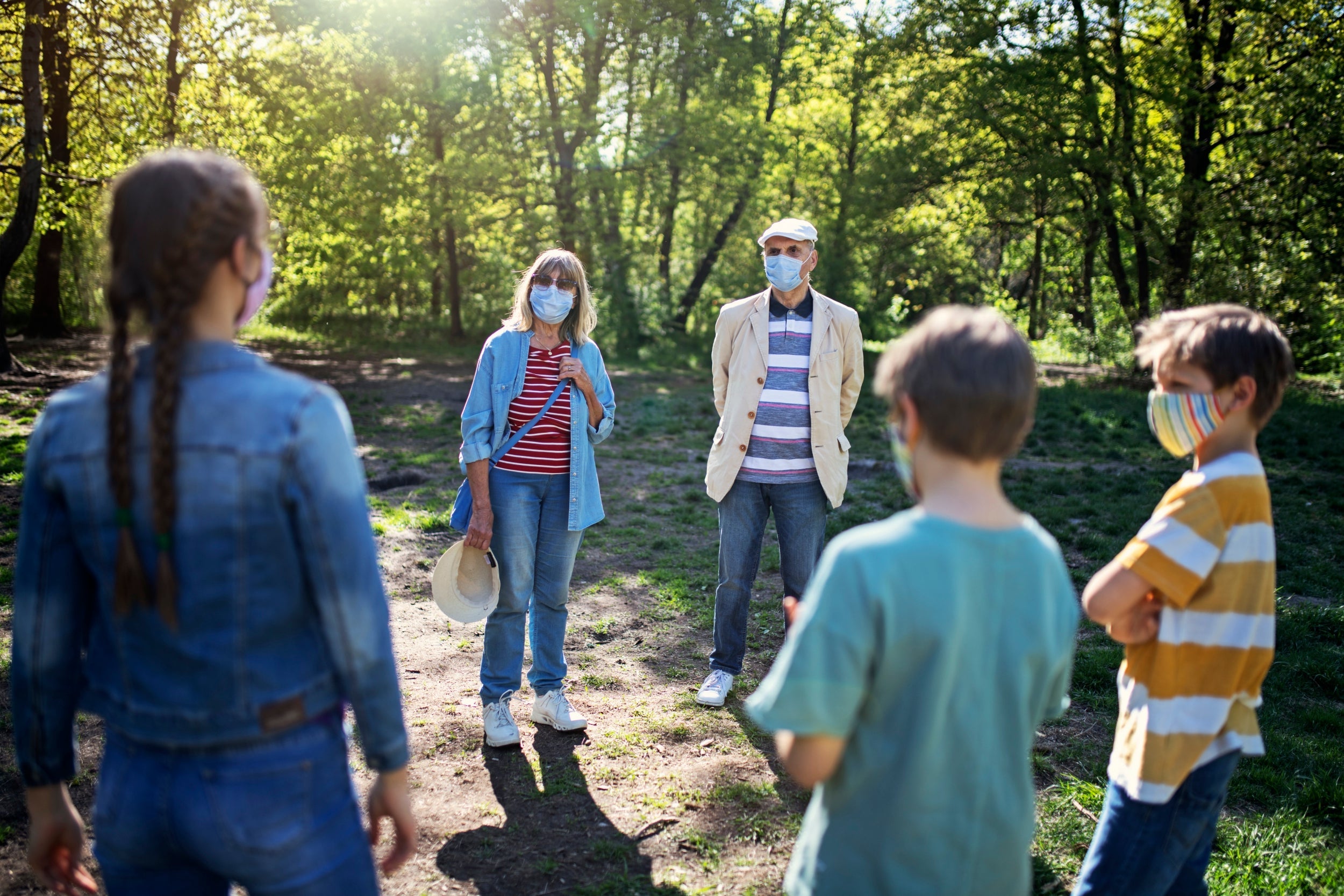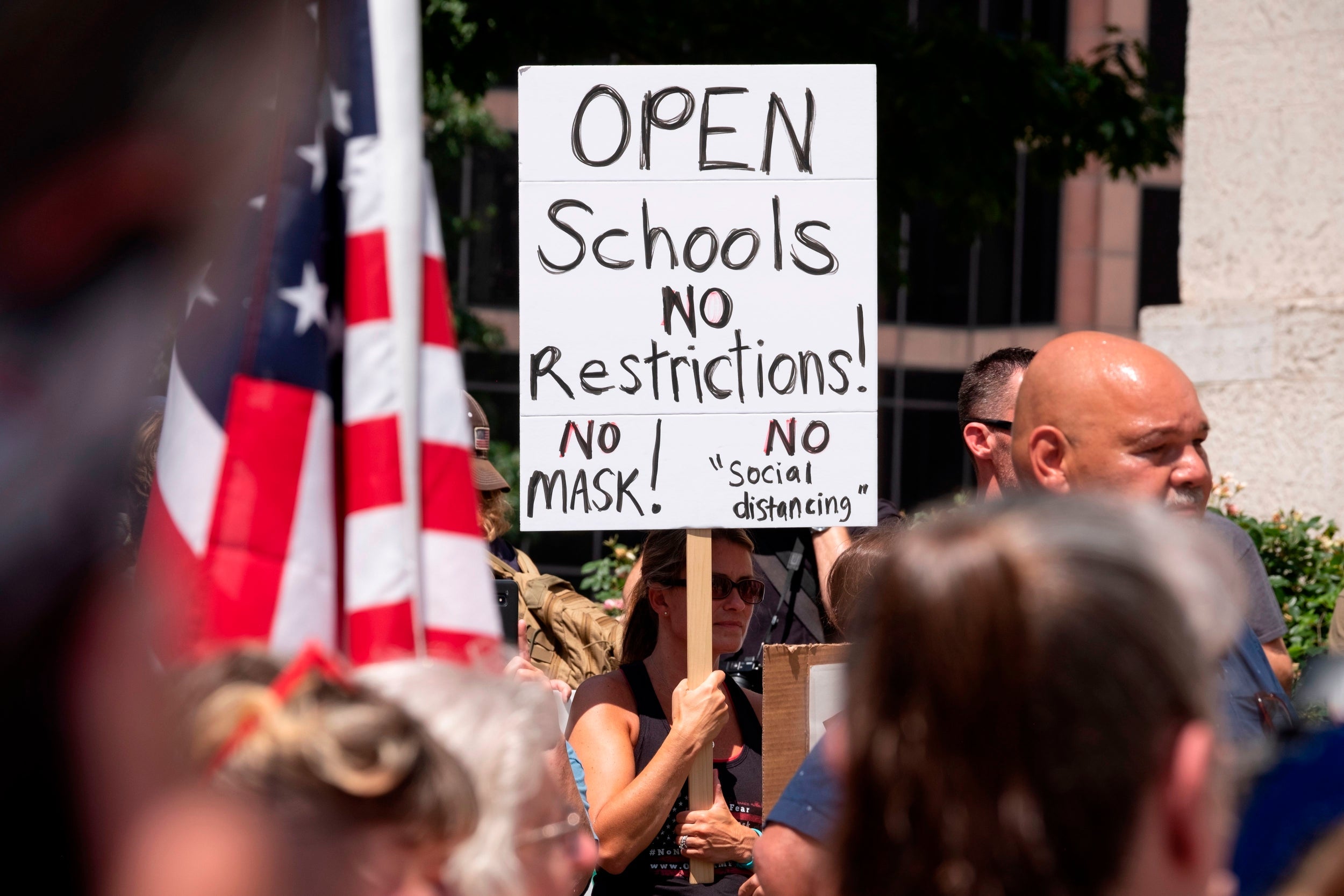‘Are we still Covid-ing?’: How friendships are being tested by coronavirus
Let’s face it, we’ve all got loved ones that don’t have the same ideas regarding what social distancing means, and for some this can go beyond a friendly disagreement, writes Katherine Ellison

Your support helps us to tell the story
From reproductive rights to climate change to Big Tech, The Independent is on the ground when the story is developing. Whether it's investigating the financials of Elon Musk's pro-Trump PAC or producing our latest documentary, 'The A Word', which shines a light on the American women fighting for reproductive rights, we know how important it is to parse out the facts from the messaging.
At such a critical moment in US history, we need reporters on the ground. Your donation allows us to keep sending journalists to speak to both sides of the story.
The Independent is trusted by Americans across the entire political spectrum. And unlike many other quality news outlets, we choose not to lock Americans out of our reporting and analysis with paywalls. We believe quality journalism should be available to everyone, paid for by those who can afford it.
Your support makes all the difference.Tell the truth: you’ve started to size up friends and relations as potentially lethal threats. You’re avoiding the longtime pal who’s married to an emergency room doctor, and maybe also the demonstrative sister who can’t stay six feet away. Conversely, perhaps you’ve finally told off the worrywart who keeps trying to persuade you to sterilise your mail.
Abundant research suggests that supportive relationships can help relieve harmful stress, with physical and mental benefits that include resistance to viruses. Yet our five-month ride on the coronacoaster is fraying, and sometimes destroying, bonds that in simpler times might have helped carry us through.
“There’s been a tightening of our social circles,” says science journalist Lydia Denworth, author of Friendship: The Evolution, Biology, and Extraordinary Power of Life’s Fundamental Bond. The pandemic, Denworth says, is “causing stress and strain to every relationship”.
Philadelphia personal injury lawyer Danyl Patterson says Covid-19 has ended her days as a “social butterfly” who used to fry 35 kilos of fish at a time for crowds of casual friends. “I’ve learned I need fewer people in my life,” she says.
Several weeks ago, Patterson moved temporarily to her boyfriend’s New Jersey home, which has a pool. As the weather heated up and friends angled for invitations, she set strict rules concerning who could visit her.
“We had to have a lot of hard conversations,” she says. “Essential workers can’t come.” Nor can people “who haven’t been truly isolating. And do you have kids 16 and older? Then you can’t come, either.”
Some friends and relatives were hurt, and some were angry.
“There are people I’m no longer speaking with,” Patterson says. Several years ago, however, Patterson lost both of her parents to the H1N1 virus, also called swine flu. Today, she says: “Everyone knows I’m serious.”
Patterson concedes she may have lost some friends for good, but she says the overall quality of her friendships has improved.
“If you’re supposedly my friend,” she says, “and you don’t accept my wishes about safety, then you’re really not my friend.”
Some public health experts say they’re worried the lockdowns and stay-at-home rules are aggravating a “loneliness epidemic” that was worrisome enough before the pandemic began. Yet Denworth, the author, says the restrictions may also provide a chance – and even the perfect excuse – to weed out relationships that were troublesome before all this began.
Good health depends not only on the closeness of our ties but also on their nature, says Julianne Holt-Lunstad, a neuroscientist at Brigham Young University. Holt-Lunstad’s recent studies suggest that “ambivalent” relationships, those combining affection and hostility (alas, like so many family ties), create chronic stress that can ultimately damage health.

“This sometimes gets lost when we talk about social isolation,” Holt-Lunstad says. “It’s not as if we just need to make people more engaged with others. We also have to pay more attention to the negativity in some relationships.”
The pandemic’s toll on friendships goes deeper than mere political polarisation – the confusion of a mask with support for “big government”. It’s more about discovering personality differences between you and your relatives and friends, including different levels of risk-tolerance and what might seem like irrational optimism on one side vs hysterical alarmism on the other. At a time when many of us are losing sleep, picturing ourselves or someone we love gasping for air in a crowded emergency room, these differences are painfully relevant.
Making the necessary conversations so much harder, however, is the scarcity of scientific information. This has made risk assessment a moving target. When even the Centres for Disease Control and Prevention do not provide clear-cut answers about how long the virus stays on surfaces (hours? days?), opinions may substitute for facts, making you likelier to argue with a friend who has just told you that you can’t use her bathroom.
“I heard this somewhere and wish I’d thought of it: we’re faced with a moment with our friends in which we’re having to navigate consent like people do with sexual relationships,” Denworth says.
In this case, however, disputes involve other primal drives, including the fear of being ostracised for possibly spreading disease and a craving for more of a sense of control.
The two didn’t speak again for nearly two weeks, and although they’ve since reconciled, Renner is still bothered that her friend couldn’t appreciate her grounds for fear
“People have stopped inviting me places because they’re worried I won’t come, which is true,” says Jennifer Renner, an office worker in California with a one-year-old child. “Or I get these condescending comments, like, ‘We’re all going to do this but feel free to bring your own cup.’ I get treated like I have this weird anxiety tic I have to manage.”
After weeks of not leaving her house, Renner recently accepted a friend’s invitation to meet at a park. “It’s perfectly safe,” she says her friend told her. Renner bundled her child into the car and drove for half an hour, but on arrival she was shocked to see throngs of people walking, running, biking and rollerblading, all close together and with hardly a mask in sight.
She never got out of her car. Instead, she texted her friend, who, to her surprise, kept insisting that she come. “She said, ‘It’s safe, you can trust me,’ with this air that I had to get out of my comfort zone.”
Renner refused. She didn’t believe her friend had any special knowledge of what was safe.
Later, she says: “I felt gaslit. This isn’t like a fear of elevators, like something I have to conquer.”
The two didn’t speak again for nearly two weeks, and although they’ve since reconciled, Renner is still bothered that her friend couldn’t appreciate her grounds for fear.
Of course, these conflicts aren’t a one-way street. Protests against alleged control-freaks are breaking out at dinner tables and on Zoom calls and social media.

An elderly woman in California normally receives a lot of likes when she confides her Covid-19 worries on Facebook. But when she recently suggested that police should control teenagers assembling without masks near her favourite coffee shop, Jen Shulman, a freelance writer, accused her of wanting to “see young people arrested on summer break so she can enjoy her damn macchiato in safety”.
“It brought out my inner cyberbully,” Shulman says.
Shulman has elderly parents whom she’s trying to protect but is also the mother of three teenagers whose lives have ground to a halt during the pandemic. Her perspective makes her impatient with both sides of the squabbling over masks, which she says has degenerated into “both groups transferring their frustration and dread onto others who are likely doing the best they can”.
There may be an upside in this strife, if friends and family eventually learn to speak more directly to one another about things that matter, strengthening relationships with new levels of understanding. But this sort of evolution would take a lot of work.
“Fighting the good fight is exhausting,” concludes Hannah Smith, an artist in South Dakota, after arguing with her sister in Illinois.
She described the run-in on a five-week-old Facebook page called: “So... Are we still Covid-ing?” which at last count had 3,000 members sharing news, advice and complaints about other people’s behaviour.
On the page and in a subsequent interview, Smith says she had tried in vain to convince her sister to keep her three children out of school, even offering to home-school them herself.

“Kids can’t get it,” she quoted her sister as saying, leading Smith to write her profanity-laced tirade, accompanied by a GIF of an actor banging his head against a wall. “I live in the land of stupid,” she fumed. Her sister declined to comment.
Research has shown that many fewer children than adults are testing positive for Covid-19, while deaths among children are extremely rare. Yet studies also demonstrate that children can still spread the disease to others.
The strength of social networks will be even more seriously tested as the weather grows colder later this year, says University of Rochester psychologist Harry Reis, who studies the effect of relationships on health.
“Right now, it’s pleasant and easy to meet outdoors,” Reis says. “But what happens when the weather gets nasty? At that point will people just cut off most of their contacts with others?”
Judging from “Are we still Covid-ing?” that moment cannot come too soon for some.
“Does anyone else want to join me in finding an island where we can live with like-minded people who wear masks in any indoor space, keep distance, and don’t comment on how ‘this is just like the flu’ or ridicule you for taking precautions?” read a recent post by a high school teacher in Ohio. “I am so exhausted from having to navigate life with people who don’t seem to give a sh...”
Her complaint drew an outpouring of emojis and supportive comments, several of which simply said: “I’m in!”
© Washington Post
Join our commenting forum
Join thought-provoking conversations, follow other Independent readers and see their replies
0Comments